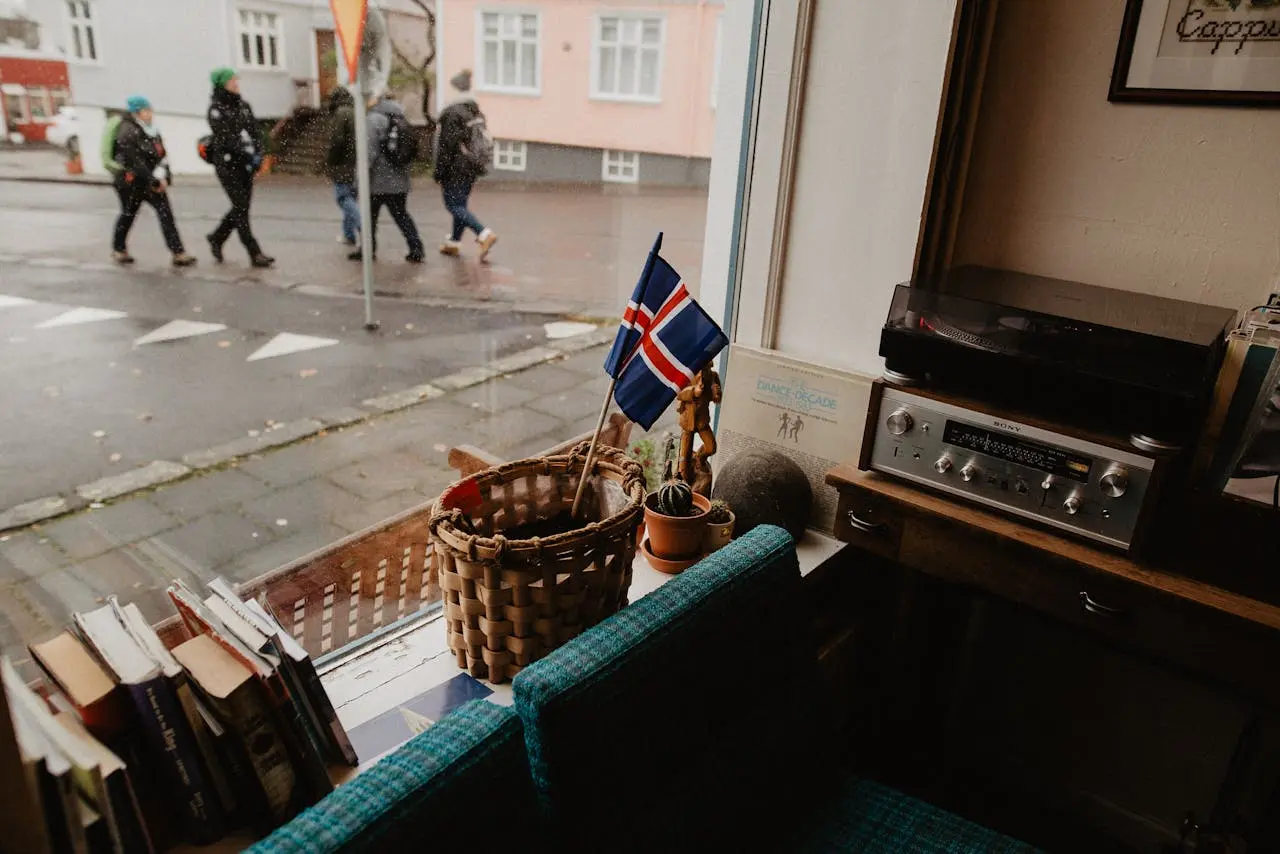Scandinavian – Norwegian, Swedish, and Danish – property markets are renowned for their distinctive characteristics, often influencing new technologies’ development and adoption. There are three main focuses: a fusion of sustainability, quality of life, and technology.
Sustainability
- Energy Efficiency: Scandinavian countries strongly emphasize energy-efficient buildings and sustainable practices.
- Green Building Standards: Strict regulations and incentives promote sustainable construction and renovation.
- Renewable Energy: A significant focus on renewable energy sources like solar and wind power.
Quality of Life
- Walkability and Accessibility: Prioritization of pedestrian-friendly neighborhoods and good public transportation. Another infrastructure particularity is biking, which is important in numerous European countries.
- Nature and Green Spaces: Abundance of parks, forests, and other natural areas.
- Community-Oriented Development: Focus on creating inclusive and sustainable communities.
Innovation
- Early Adoption: Scandinavian countries are known for their early adoption of new technologies, including in the property sector.
- Digitalization: A high level of digitalization in various aspects of real estate, from property management to transactions.
- Innovation Hubs: Presence of technology hubs and startups focusing on proptech solutions.
These unique characteristics create a fertile ground for the development and adoption of AI and machine learning solutions in the Scandinavian property market, as these technologies can help address key challenges and opportunities related to sustainability, quality of life, and efficiency.
For more on machine learning, please check out our article.
Key Applications of AI and Machine Learning in Scandinavian Real Estate

Cultural Factors on Property Valuation in Scandinavia. Hygge and Fika: More Than Just Buzzwords
Scandinavian culture emphasizes concepts like hygge (cozy atmosphere) and fika (coffee break), which significantly influence property preferences. When valuing properties in Scandinavia, it’s essential to consider factors such as:
- Proximity to nature: Properties with easy access to green spaces and natural features are often valued higher due to their contribution to hygge and a sense of well-being.
- Indoor comfort: Features that create a cozy and inviting atmosphere, such as fireplaces, natural light, and comfortable furnishings, can significantly impact property values.
- Community spaces: Shared spaces like courtyards, gardens, or communal areas can enhance the overall living experience and increase property value.
AI and machine learning can significantly enhance property valuation in Scandinavia by incorporating cultural factors like hygge and fika and assessing the impact of sustainable features.
Hygge and Fika:
- Personalized recommendations: AI algorithms can analyze property data to identify properties that best align with the hygge concept, such as those with cozy atmospheres, natural light, and proximity to green spaces.
- Sentiment analysis: Machine learning can analyze online reviews and social media data to gauge public sentiment towards specific neighborhoods and properties, providing insights into the factors that contribute to hygge.
Sustainability:
- Energy efficiency prediction: AI models can analyze property data to predict energy consumption and identify opportunities for improvement.
- Sustainable materials assessment: Machine learning can be used to evaluate the sustainability of building materials and construction practices.
- Environmental impact analysis: AI can help assess the environmental impact of properties, considering factors like carbon footprint and water usage.
By incorporating AI and machine learning, property valuation models can become more accurate and comprehensive, providing valuable insights for both buyers and sellers in the Scandinavian market.

AI and Machine Learning in Analytics & Forecasting Scandinavian Property Trends
Co-living and remote work are natural complements in Scandinavian countries. These concepts offer a unique blend of community, affordability, sustainability, and work-life balance, aligning with the region’s cultural values and economic landscape.
Co-living spaces have become increasingly popular in Scandinavian countries, offering a unique blend of community, affordability, and sustainability. These shared living spaces provide communal areas, social events, and networking opportunities, fostering a sense of belonging and connection among residents.
For young professionals and students in expensive cities, co-living can be a more affordable housing option compared to traditional rentals. Additionally, many co-living spaces prioritize sustainability by offering shared amenities and eco-friendly practices.
The Scandinavian emphasis on equality, community, and social responsibility aligns perfectly with the values of co-living. This cultural context creates a favorable environment for the growth and success of co-living communities.
Remote work has also gained significant traction in Scandinavia, thanks to the region’s flexible work policies and well-developed infrastructure. By eliminating commutes and allowing for flexible schedules, remote work can significantly improve work-life balance.
Scandinavian cultures emphasize trust and autonomy, making remote work arrangements more successful. Employees are often given the freedom to manage their work, leading to increased productivity and job satisfaction.
Forecasting the Co-Living Market
AI and machine learning can provide valuable insights into the evolving co-living market in Scandinavia. By analyzing various data points, these technologies can help predict:
- Demand fluctuations: Identify peak seasons and periods of lower demand for co-living spaces.
- Location preferences: Determine the most desirable neighborhoods and cities for co-living residents.
- Pricing trends: Forecast rental rates and occupancy rates based on market conditions.
- Amenity preferences: Understand the amenities that are most valued by co-living residents.
Example: An AI-powered platform could analyze social media data to identify emerging trends in co-living preferences among young professionals, such as a desire for pet-friendly spaces or flexible lease terms.
Predicting the Impact of Remote Work on Office Space Demand
AI and machine learning can also be used to forecast the long-term impact of remote work on office space demand in Scandinavia. By analyzing data on:
- Remote work adoption rates
- Changes in office occupancy rates
- Economic indicators
- Workplace trends
AI models can predict future trends in office space demand, helping property owners and investors make informed decisions about their portfolios.
Example: An AI-powered model could analyze data on remote work adoption rates in different Scandinavian cities to forecast the potential decline in demand for traditional office space and identify emerging trends in flexible workspaces. By leveraging AI and machine learning, property professionals can gain a competitive edge and make data-driven decisions in the dynamic Scandinavian property market.
Scandinavians have a deep appreciation for nature, quality of life, and sustainability. When it comes to finding their ideal home, these factors play a significant role.

Harnessing AI and ML in scandinavian PropTech
To provide truly personalized recommendations, AI and machine learning can be leveraged to:
- Analyze individual preferences: Identify specific preferences for green spaces, proximity to nature, and energy-efficient features.
- Understand local markets: Analyze market trends and identify neighborhoods that align with these preferences.
- Recommend properties: Suggest properties that best match the individual’s needs and desires.
- Impact of AI/ML on the Scandinavian Property Market
Increased Efficiency:
- Automated Property Management: AI-powered tools can streamline tasks such as tenant screening, rent collection, and maintenance scheduling, freeing up property managers to focus on more strategic initiatives.
- Predictive Maintenance: By analyzing property data and identifying patterns, AI can predict maintenance needs, reducing unexpected costs and disruptions.
Improved Sustainability:
- Energy Optimization: AI algorithms can analyze energy consumption data to identify areas for improvement and recommend energy-saving measures.
- Sustainable Building Design: AI-powered tools can assist in designing sustainable buildings by optimizing factors like natural light, ventilation, and insulation.
Enhanced Customer Experience:
- Personalized Recommendations: AI can analyze customer preferences and market trends to suggest properties that align with individual needs and desires.
- Virtual Tours: AI-powered virtual tours can provide potential buyers with immersive experiences, reducing the need for physical viewings.
- Chatbots and Customer Support: AI-powered chatbots can provide instant customer support and answer common queries.

Examples of AI and Machine Learning Applications in Scandinavian Property
AI-powered property valuation models: Leveraging AI to precisely assess property values by considering factors such as location, size, condition, and market trends has transformed the real estate industry. These cutting-edge algorithms scrutinize extensive datasets to provide exact valuations with unmatched speed and efficiency, empowering buyers, sellers, and real estate professionals to make well-informed decisions. Furthermore, AI models continually evolve and improve, incorporating the latest market dynamics and regional nuances, ultimately delivering a more reliable and comprehensive assessment.
Predictive maintenance for building management: Using AI to analyze sensor data and predict maintenance needs, reducing downtime and costs. By continuously monitoring the condition of critical building systems such as HVAC, elevators, and electrical components, AI can identify potential issues before they lead to failures. This proactive approach not only enhances the longevity of the equipment but also ensures the safety and comfort of the building’s occupants. Additionally, predictive maintenance optimizes resource allocation by scheduling repairs during non-peak hours, further minimizing disruptions and expenses.
Personalized property recommendations: Matching potential buyers or renters with properties that align with their preferences and lifestyle, including factors such as location, budget, amenities, and community features. By leveraging advanced algorithms and comprehensive data analysis, we ensure that each recommendation suits the unique needs and desires of each individual, thereby simplifying the search process and enhancing overall satisfaction.
Virtual property tours: Creating immersive virtual experiences that allow potential buyers to explore properties from anywhere in the world. Utilizing cutting-edge technology, these tours offer high-resolution visuals and interactive features, enabling viewers to navigate through each room and examine every detail as if they were physically present. This innovation not only saves time and travel expenses but also widens the reach of real estate agents, presenting properties to an extensive global audience.

Cultural Considerations and Challenges of AI/ML in Norway, Denmark, and Sweden
Scandinavian countries have been at the forefront of technological innovation, and the property technology (proptech) sector is no exception. AI and machine learning (AI/ML) have the potential to revolutionize the way real estate is managed, marketed, and experienced in these regions. However, successful implementation requires careful consideration of cultural nuances and regulatory challenges.
Data Privacy:
Scandinavian countries have stringent data privacy regulations, such as the General Data Protection Regulation (GDPR), which places strict requirements on how personal data is collected, processed, and stored. Proptech companies must ensure that their AI/ML systems comply with these regulations to avoid legal and reputational risks.
Trust and Transparency:
Building trust with consumers is essential in the Scandinavian market. AI-powered systems must be transparent and explainable, allowing users to understand how decisions are made. This can be achieved through techniques like interpretable machine learning and providing clear information about the data used and the decision-making process.
Cultural Nuances:
Scandinavian cultures place a strong emphasis on sustainability, equality, and community. AI/ML systems must be designed to align with these values and provide recommendations that are relevant to local preferences and needs. For example, when recommending properties, AI algorithms should consider factors like proximity to nature, energy efficiency, and accessibility for people with disabilities.
Conclusion
AI and machine learning are changing the game in the Scandinavian property market. From streamlining processes to promoting sustainability and offering personalized recommendations, these technologies are revolutionizing the way we buy, sell, and live in Scandinavian homes.
But it’s not just about the tech. To succeed in this market, it’s crucial to play by Scandinavian rules. That means being transparent, ethical, and mindful of the unique cultural values that shape the region.
By working together, industry leaders, governments, and innovators can create a property market that’s not just efficient but also sustainable, equitable, and downright hyggelig 🙂
Artificial Intelligence (AI) is a broad field of computer science that focuses on creating intelligent agents and systems that can reason, learn, and solve problems. AI aims to develop machines that can think and act like humans.
Machine Learning (ML) is a subset of AI that teaches computers to learn from data and improve their performance on a specific task without being explicitly programmed. ML algorithms identify patterns and relationships within data to make predictions or decisions.


